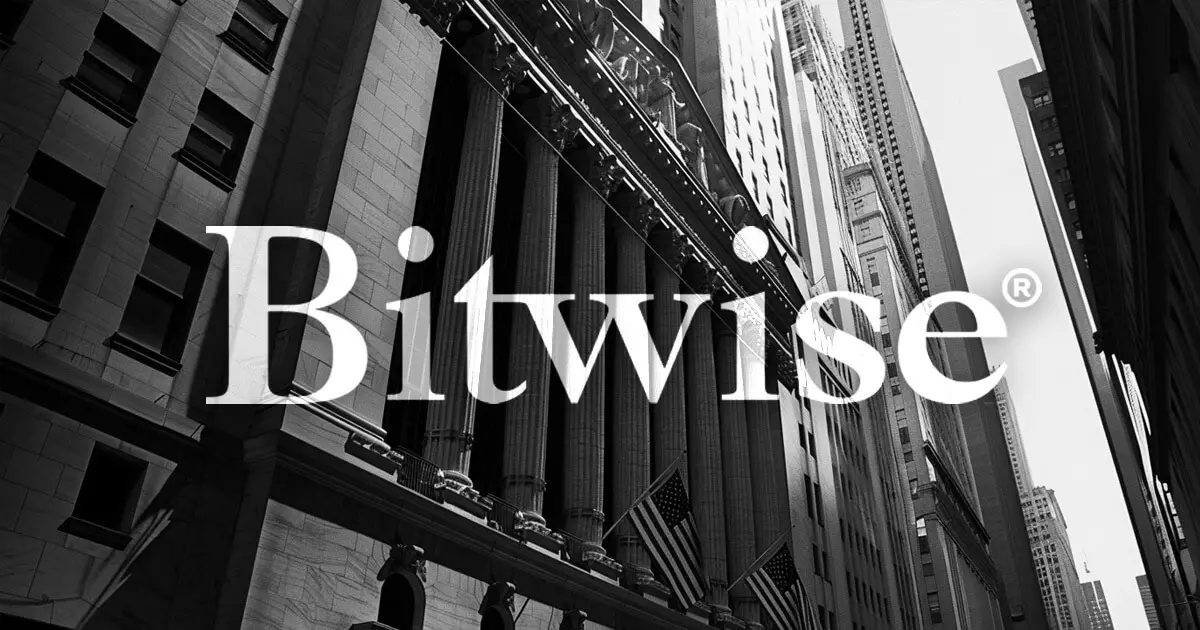Amidst the explosive growth and burgeoning credibility of the cryptocurrency market, voices of caution resonate louder than ever. Matt Hougan, Chief Investment Officer at Bitwise, recently sounded a warning bell regarding the fragile condition of the digital asset landscape. This ‘high-risk, high-reward’ sector has become a beacon of innovation and wealth creation, yet it remains perilously perched on the precipice of uncertainty, driven in large part by the absence of decisive legislative action in Washington. A tumultuous summer could be on the horizon if Congress fails to enact crucial crypto regulations.
The Importance of Legislative Clarity
Historically, the crypto market has thrived in environments marked by innovation and regulatory clarity. Under the Donald Trump administration, we witnessed significant strides made towards legitimizing digital assets, albeit with the potential for future abrogation by updated executive priorities. While recent advancement included the establishment of mechanisms like the U.S. Bitcoin Strategic Reserve, such initiatives are inherently unstable and easily unwound by subsequent administrations. This underpins the urgency for meaningful Congressional intervention.
If lawmakers fail to provide a robust legal framework for digital assets, including stablecoins and marketplace regulations, investor confidence could dissipate rapidly. The current political wrangling in Washington serves as a reminder that the winds of fortune for cryptocurrencies can shift with legislative inertia—or, worse, outright opposition. The need for a bipartisan, comprehensive approach to crypto regulation is critical, yet the recent collapse of support for the Stablecoin GENIUS Act underscores deep-seated fissures in Congress that remain unresolved.
The Stability of Stablecoins: A House of Cards?
Stablecoins are often heralded as the anchor for the cryptocurrency universe, designed to carry the legitimacy of fiat currency into the complex world of digital assets. However, without stringent regulations, their very stability teeters on the brink of chaos. The proposed regulations included a stern mandate for reserves with full backing from liquid assets—an ideal scenario for consumer protection and market stability. But as disheartening as it is to witness the withdrawal of support from key Democratic figures, including Senate Minority Leader Chuck Schumer, this act exposes a far deeper struggle concerning national security and anti-money laundering efforts.
Investors deserve to understand the frameworks that govern their assets. The absence of rigorous oversight creates an environment ripe for manipulation, and the sentiment that stablecoins mitigate volatility is far from universally accepted. This precarious position should concern any serious investor looking at the long-term sustainability of the cryptocurrency ecosystem.
The Ripple Effect of Hesitation
Matt Hougan is correct to maintain that the passage of even one regulation could signal a much-needed dose of stability to the beleaguered cryptocurrency market. However, in the current climate, the complete absence of definitive regulatory action breeds anxiety among investors. Failure to act might introduce volatility not only in crypto prices but also could inhibit the integration of digital assets into mainstream financial systems. If the uncertainty prolongs, we risk sidelining the U.S. in the global race to lead in digital finance.
The notion that U.S. government debt may gain international traction as digital currency adoption accelerates adds yet another layer of urgency for regulators. Enhancing the role of the dollar within cross-border payments through stablecoin adoption is not merely a revenue stream; it is a matter of maintaining geopolitical leverage. Yet, time is of the essence, and any delay exacerbates the risks to both the market and to America’s standing on the global financial stage.
The Implications of Inaction
As summer approaches, the vibe in the cryptocurrency market is increasingly ominous. Groundbreaking innovations and historically high valuations could be overshadowed by rampant speculation and political headwinds. The window for meaningful legislative reform is closing, and should Congress continue its present path of indecision, it could precipitate a substantial downturn.
Investors are not simply looking for affirmation from Congress; they are hoping for a proactive approach that will pave the way for a stable, innovative ecosystem. Cryptocurrency’s potential has returned unprecedented value, yet it risks becoming a spectator sport rather than an avenue for wealth creation if legislative progress halts dead in its tracks.

